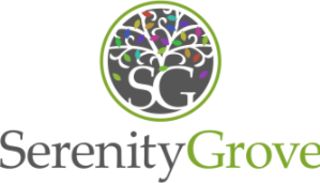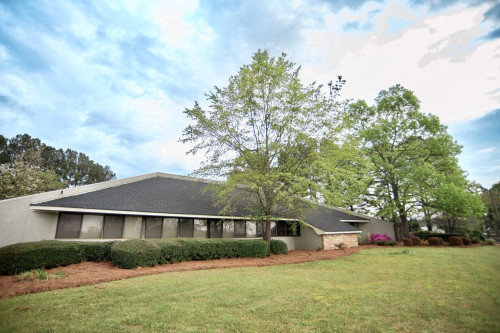

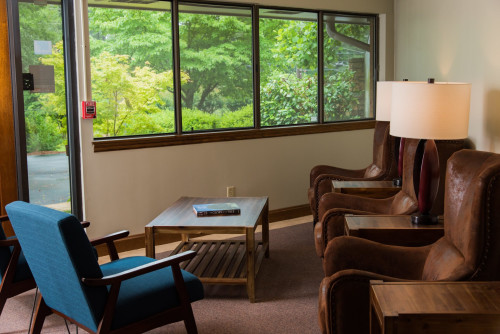




Serenity Grove
Verified Center
This provider's information has been quality-checked by Recovery.com's Research Team for accuracy and completeness, including center verification through appropriate third-party organizations.
Treatment Focus
This center treats substance use disorders and mental health conditions. You'll receive individualized care catered to your unique situation and diagnosis, learn practical skills for recovery, and make new connections in a restorative environment.
Primary Level of Care
Offering intensive care with 24/7 monitoring, residential treatment is typically 30 days and can cover multiple levels of care. Length can range from 14 to 90 days typically.
Treatment Focus
This center treats substance use disorders and mental health conditions. You'll receive individualized care catered to your unique situation and diagnosis, learn practical skills for recovery, and make new connections in a restorative environment.
Primary Level of Care
Offering intensive care with 24/7 monitoring, residential treatment is typically 30 days and can cover multiple levels of care. Length can range from 14 to 90 days typically.
Provider's Policy
We’ll quickly verify your insurance so that you can begin treatment confident that your services will be covered. At this time, we do not accept Medicaid or Medicare.
Serenity Grove
Serenity Grove
About Serenity Grove
Serenity Grove takes a whole-person approach to treating addiction and co-occurring mental health conditions, combining evidence-based care with holistic therapies that meet each client exactly where they are. Every treatment plan is thoughtfully tailored—whether someone is in residential care, a partial hospitalization program (PHP), an intensive outpatient program (IOP), or starting with detox.
Learn Tools to Handle Life’s Curveballs
At Serenity Grove, treatment goes deeper than just checking boxes—it’s about really knowing each person and what they need to thrive. Their team weaves together science-backed therapies with things that ground clients, like yoga, meditative therapy, and life skills coaching. They’re helping people rebuild from the inside out, whether that means managing anxiety, repairing family relationships, or learning how to handle life’s curveballs.
Reconnect with Self in Peaceful Surroundings
On a quiet, private 4-acre campus in Athens, Georgia, the setting offers a peaceful escape from the noise of everyday life. Clients can choose cozy, comfortable private or semi-private rooms that give them the space to rest. The grounds are dotted with nature trails and quiet meditation spots—perfect for finding calm and breathing deeply.
Prevent Relapse with Ongoing Guidance
Finishing treatment is a huge step, but stepping back into everyday life—with its stresses and old routines—can feel overwhelming. With ongoing support from case managers, clients have someone walking alongside them for months or years. And when tough moments come, clients know exactly where to turn for immediate, compassionate help.

Highlights from the Center
Highlights
These highlights are provided by and paid for by the center.
Nature Lovers
Holistic Approach
Perfect for Professionals
Private Rooms Available
Center Overview
Treatment Focus
This center treats substance use disorders and mental health conditions. You'll receive individualized care catered to your unique situation and diagnosis, learn practical skills for recovery, and make new connections in a restorative environment.
Joint Commission Accredited
The Joint Commission accreditation is a voluntary, objective process that evaluates and accredits healthcare organizations (like treatment centers) based on performance standards designed to improve quality and safety for patients. To be accredited means the treatment center has been found to meet the Commission's standards for quality and safety in patient care.
Insurance Accepted
Cash Pay Rates
Estimated Cash Pay Rate
Center pricing can vary based on program and length of stay. Contact the center for more information. Recovery.com strives for price transparency so you can make an informed decision.
Meet Your Care Team

A. Patrick Brooks
Medical Director
MD

Star Bridges
Clinical Director
MS LPC CMAC CCS

Katie Sklivagkos
Nurse Practitioner
RN, MSN, FNP-C

Dr. Delquis Mendoza
Psychiatrist
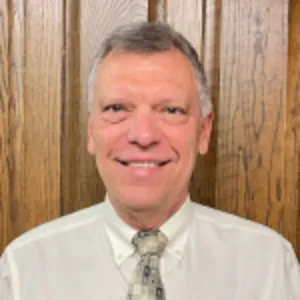
Mike Forrest
Physician Assistant
P.A.

Philip Sangster
Physician Assistant-Certified
PA-C

Todd Saner
Client Care Manager

Lindsay Avery
Director of Operations

Tommie L. (Larry) Walton, III
Training Consultant
LCSW, MAC, MINT

Cam Moore
Director of Admissions

Sara Sayre
Admissions & Business Development Coordinator

Renee Ware
Therapist
LPC
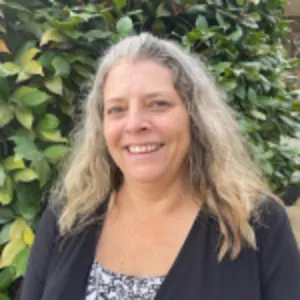
Alyssa Leggett
Certified Addiction Counselor
CACI
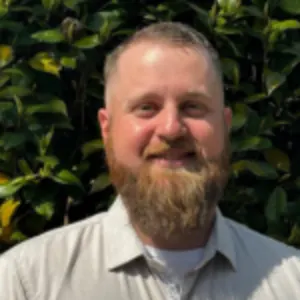
Jordan Whiddon
Director of Nursing
RN

Nashia Mayfield
Counselor
LAPC

Cathie Puckett,
Group Facilitator
CACI
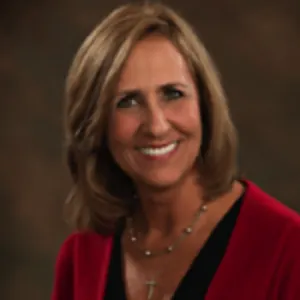
Karen Skinner
Consulting Counselor
MED, GCADC III



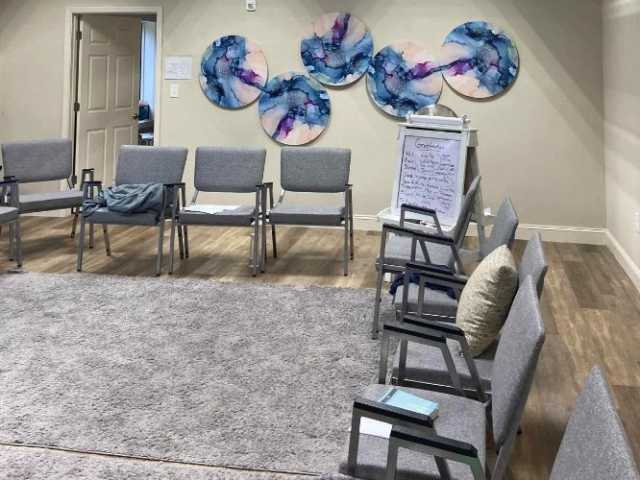
Levels of Care







Your Care Options
Specializations
Alcohol
Using alcohol as a coping mechanism, or drinking excessively throughout the week, signals an alcohol use disorder.
Anxiety
Anxiety is a common mental health condition that can include excessive worry, panic attacks, physical tension, and increased blood pressure.
Detox
Detox fully and safely removes toxic substances from the body, allowing the next steps in treatment to begin with a clean slate.
Benzodiazepines
Benzodiazepines are prescribed to treat anxiety and sleep issues. They are highly habit forming, and their abuse can cause mood changes and poor judgement.
Depression
Symptoms of depression may include fatigue, a sense of numbness, and loss of interest in activities. This condition can range from mild to severe.
Heroin
Heroin is a highly addictive and illegal opioid. It can cause insomnia, collapsed veins, heart issues, and additional mental health issues.
Opioids
Opioids produce pain-relief and euphoria, which can lead to addiction. This class of drugs includes prescribed medication and the illegal drug heroin.
Prescription Drugs
It's possible to abuse any drug, even prescribed ones. If you crave a medication, or regularly take it more than directed, you may have an addiction.
Who We Treat
Young Adults
Emerging adults ages 18-25 receive treatment catered to the unique challenges of early adulthood, like college, risky behaviors, and vocational struggles.
LGBTQ+
Addiction and mental illnesses in the LGBTQ+ community must be treated with an affirming, safe, and relevant approach, which many centers provide.
Men and Women
Men and women attend treatment for addiction in a co-ed setting, going to therapy groups together to share experiences, struggles, and successes.
Midlife Adults
For adults ages 40+, treatment shifts to focus on the unique challenges, blocks, and risk factors of their age group, and unites peers in a similar community.
Professionals
Busy, high-ranking professionals get the personalized treatment they need with greater accommodations for work, privacy, and outside communication.
Veterans
Patients who completed active military duty receive specialized treatment focused on trauma, grief, loss, and finding a new work-life balance.
Approaches
Evidence-Based
A combination of scientifically rooted therapies and treatments make up evidence-based care, defined by their measured and proven results.
Family Involvement
Providers involve family in the treatment of their loved one through family therapy, visits, or both–because addiction is a family disease.
Individual Treatment
Individual care meets the needs of each patient, using personalized treatment to provide them the most relevant care and greatest chance of success.
Twelve Step
Incorporating spirituality, community, and responsibility, 12-Step philosophies prioritize the guidance of a Higher Power and a continuation of 12-Step practices.
Therapies
1-on-1 Counseling
Patient and therapist meet 1-on-1 to work through difficult emotions and behavioral challenges in a personal, private setting.
Art Therapy
Visual art invites patients to examine the emotions within their work, focusing on the process of creativity and its gentle therapeutic power.
Eye Movement Therapy (EMDR)
Lateral, guided eye movements help reduce the emotional reactions of retelling and reprocessing trauma, allowing intense feelings to dissipate.
Family Therapy
Family therapy addresses group dynamics within a family system, with a focus on improving communication and interrupting unhealthy relationship patterns.
Life Skills
Teaching life skills like cooking, cleaning, clear communication, and even basic math provides a strong foundation for continued recovery.
Mindfulness-Based Cognitive Therapy
MBCT combines mindfulness practices—like meditation—with cognitive therapy techniques to help patients work through negative thought patterns.
Motivational Interviewing and Enhancement Therapy (MET)
This approach is based on idea that motivation to change comes from within. Providers use a conversational framework that may help you commit to recovery.
Conditions We Treat
Personality Disorders
Personality disorders destabilize the way a person thinks, feels, and behaves. If untreated, they can undermine relationships and lead to severe distress.
ADHD, ADD
ADHD is a common mental health condition caused by dopamine imbalance. Common symptoms include inattention, hyperactivitiy, and impulsivity.
Anxiety
Anxiety is a common mental health condition that can include excessive worry, panic attacks, physical tension, and increased blood pressure.
Bipolar
This mental health condition is characterized by extreme mood swings between depression, mania, and remission.
Codependency
Codependency is a pattern of emotional dependence and controlling behavior. It's most common among people with addicted loved ones.
Depression
Symptoms of depression may include fatigue, a sense of numbness, and loss of interest in activities. This condition can range from mild to severe.
Internet Addiction
Internet addiction is common among children teens. This compulsive disorder can damage relationships, school performance, sleep habits, and physical health.
Obsessive Compulsive Disorder (OCD)
OCD is characterized by intrusive and distressing thoughts that drive repetitive behaviors. This pattern disrupts daily life and relationships.
Post Traumatic Stress Disorder
PTSD is a long-term mental health issue caused by a disturbing event or events. Symptoms include anxiety, dissociation, flashbacks, and intrusive thoughts.
Substances We Treat
Alcohol
Using alcohol as a coping mechanism, or drinking excessively throughout the week, signals an alcohol use disorder.
Benzodiazepines
Benzodiazepines are prescribed to treat anxiety and sleep issues. They are highly habit forming, and their abuse can cause mood changes and poor judgement.
Co-Occurring Disorders
A person with multiple mental health diagnoses, such as addiction and depression, has co-occurring disorders also called dual diagnosis.
Cocaine
Cocaine is a stimulant with euphoric effects. Agitation, muscle ticks, psychosis, and heart issues are common symptoms of cocaine abuse.
Drug Addiction
Drug addiction is the excessive and repetitive use of substances, despite harmful consequences to a person's life, health, and relationships.
Ecstasy
Ecstasy is a stimulant that causes intense euphoria and heightened awareness. Abuse of this drug can trigger depression, insomnia, and memory problems.
Heroin
Heroin is a highly addictive and illegal opioid. It can cause insomnia, collapsed veins, heart issues, and additional mental health issues.
Psychedelics
Hallucinogenic drugs—like LSD—cause euphoria and increased sensory experiences. When abused, they can lead to depression and psychosis.
Languages
Aftercare
Care Designed for Your Needs
Personal Amenities
Amenities
Special Considerations
Family Member Stays
Treatment providers welcome family members to stay on-site to better the experience and success of patients and their families as a whole.
Activities
Off-Site Amenities
What people are saying
Treatment
5.0
Accommodations
4.9
Food & Nutrition
4.8
Value
5.0
Pros
- Supportive Aftercare (5)
- Treated With Respect (4)
- Friendly & Competent Staff (3)
- Excellent & Effective Treatment Programming (3)
Cynthia
Treatment in 2022 • (30 days) • Reviewed 11/10/23
Former Client
Jamie T
Treatment in 2020 • (7 days) • Reviewed 05/07/23
Former Client
•Medical Assistant
•Covington, Ga
Tommie
Reviewed 05/02/23
Referring Professional
•Therapist and Interventionist
Rachel C.
Treatment in 2022 • (90 days) • Reviewed 05/04/23
Loved One of a Former Client
Karen
Reviewed 05/02/23
Referring Professional
•Addiction Counselor






